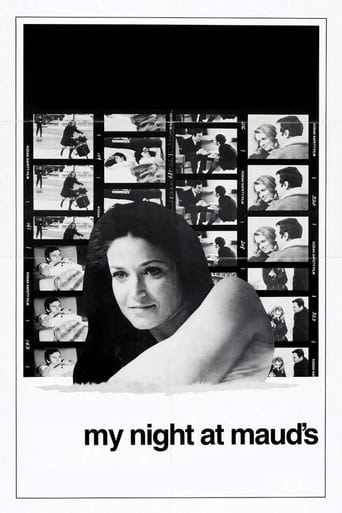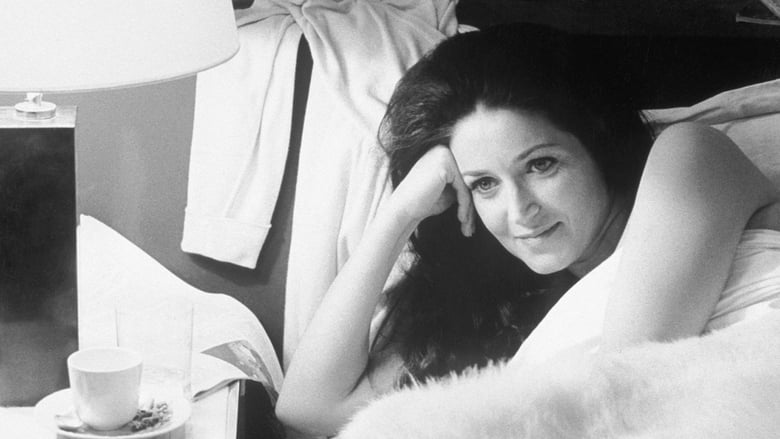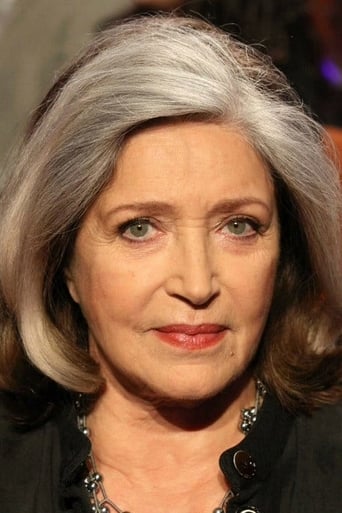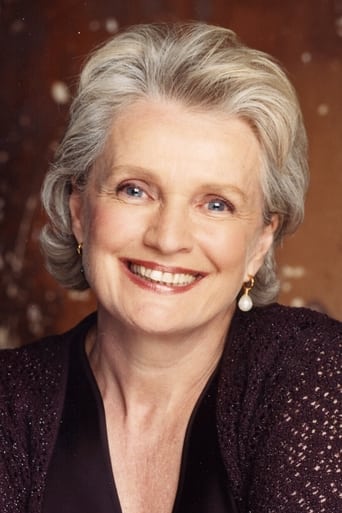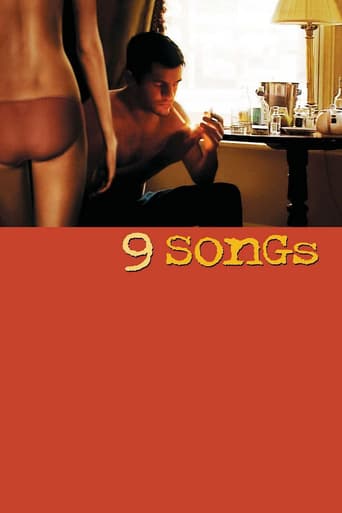My Night at Maud's (1969)
The Catholic Jean-Louis runs into an old friend, the Marxist Vidal, in Clermont-Ferrand around Christmas. Vidal introduces Jean-Louis to the modestly libertine, recently divorced Maud and the three engage in conversation on religion, atheism, love, morality and Blaise Pascal's life and writings on philosophy, faith and mathematics. Jean-Louis ends up spending a night at Maud's. Jean-Louis' Catholic views on marriage, fidelity and obligation make his situation a dilemma, as he has already, at the very beginning of the film, proclaimed his love for a young woman whom, however, he has never yet spoken to.
Watch Trailer
Free Trial Channels
Cast


Similar titles
Reviews
For having a relatively low budget, the film's style and overall art direction are immensely impressive.
if their story seems completely bonkers, almost like a feverish work of fiction, you ain't heard nothing yet.
It's funny, it's tense, it features two great performances from two actors and the director expertly creates a web of odd tension where you actually don't know what is happening for the majority of the run time.
The movie's neither hopeful in contrived ways, nor hopeless in different contrived ways. Somehow it manages to be wonderful
The trendy statues being unmovable in the ordinary I add nothing not to go into the fawning, but for this movie which is one of better of Rohmer I allow myself a precision: as usual the director offers us stereotypes and the being fact that they are so much calcified, that they take an inverse shape during the movie. Whatever it pleases or not to these fanatics of the author of the legendary author from the french "Nouvelle-Vague".To begin with the central figure, Jean-Louis, the Catholic who does not know what he wants (as all the Catholics, moreover and I know what I'm talking about.) Thus, if we cross by the bourgeois à-priori very often seen - and a little bit terrible it is necessary to say - in the movies of Rohmer, many options during the narrative make that the story is easily allowed to follow.All in all the femme fatale of the intrigue, Maud (Françoise Fabian) is in fact the most romantic otherwise the one who thinks most: there is only to see the last sequence in the beach... As for the blonde Françoise (Marie-Christine Barrault) his character of future "femme-au- foyer" becomes in filigrame the most perverse, the most painless and in any case the character the most revealed by the end of the movie. Delicately perverse, as a matter of fact...Between the smart and wily brunette and the subdued blonde, opposite take off and let appear after all a situation other than we can think of formerly: everything is not as well simple as we are willing to believe it.Obviously it talks a lot and the whole contains a happy-end corresponding as in all the works of Eric Rohmer but its paradoxical and basic aspect is to be discovered.A must-see classic to see anyway with also a magnificent music.*I've got a lover
The third of Rohmer's Moral Tales, and quite unlike the previous two. The first two clocked in at approximately 23 minutes and 54 minutes, respectively. "My Night at Maud's", almost two hours. While the first two Moral Tales were basically first-person narration accompanied by visuals, which were secondary but stimulating nonetheless, "My Night at Maud's" is a dialogue-driven piece in which character's exchange personal philosophies and trade the ideas of their favorite philosophers like baseball cards. Although I'm not sure of which films are in Richard Linklater's (Before Sunrise, Before Sunset) DVD collection, it would probably be safe to assume that this is one of them.Because it is a dialogue-driven piece, much more happens in the 54-minute-long "Suzanne's Career", Rohmer's second moral tale, than in "My Night at Maud's", which is about an hour longer. It can seem meandering at times, especially the first-half of the film, but put your trust in Rohmer. We're being bored to death for a reason. Listening to two Frenchmen discuss Pascal's Wager isn't very entertaining, but the payoff comes when, later on in the film, the characters are put into situations in which they have to make their own Pascal's wager, metaphorically speaking. The reward comes when we see these philosophies which they discussed tested in real-life situations, and we see how true, or untrue, to their ideals these characters are.During the first fifty minutes, you may be bored out of your skull, but the way the film unfolds, you'll probably want to go back and watch the first fifty minutes again after it's over.
8 Ambiguity Preferable?It's hard to speak about "My Nigh at Maud's" in words other than those of praise for its filmic qualities... but how's about taking on meaning. Either this film is pretty ambiguous or I'm missing something. Whether one dissects its parts or observes it whole, it remains ambiguous. So, isn't ambiguity a good thing? Yes, if its recognition leads to meaning, action, truths. No, if it is simply escape, fence-sitting, or art-for-art's sake. But is Rohmer's masterpiece as ambiguous as it appears? My guess is that it's not. Rohmer sets up these distinct dichotomies between religion/piety and atheism/freedom, light and dark, and men and women. He seems somewhat more sympathetic toward the latter, but a proponent of the former. Perhaps he stands with the preacher for whom Christianity is a "way of life," and "an adventure of sanctity." But isn't Rohmer left behind when his priest adds that it "takes madness to become a saint?" I say this because the film's ending casts a firm vote for form over freedom. But his move away from ambiguity in the direction of form--as opposed to freedom, seems to detract from his genuine classic. For its Rohmer's solipsisms (sex, love, marriage) that present the problem. First, his central character's role is undermined by these. Jean-Louis is initially an absorbing character, a provincial intellectual, with an air of world travel, and independence. There is no dis-juncture between him and the incredibly effective mise en scene. He is as particular a man in a very specific place--as is his friend, Vidal, the suave philosophy professor. They breathe the air of this provincial world--and such a rare treat: intellectuals with holds on themselves occupying film space. But Jean-Louis's distinction begins to slip early and slides (incidentally, so does Vidal's and for similar reasons) during his night at Maud's. There's something about the way he chases Francoise--it seems too mundane, too breezy and somewhat obtuse--as if he's quickly morphing into the default French male. But he does make comebacks--that is, before setting foot in Maud's apartment. The problem, however, isn't Maud's--his holy water piety or self-righteousness are not at issue--nor is Jean-Louis Trintignant's performance because he fits the original character perfectly. It's the role. He has not only made a generic male but, more specifically, a Rohmer male--one who exists to experience moral tests via a Rohmer type female who is seductive (always leggy) wily, sophisticated at least in the ways of sex/love/men, and above all, tempting. As unsettling as Maud may be (see below) again it's the role that takes him out of character, not Maud. He loses his reserve, he becomes too confessional, too awkward--physically and emotionally. He adopts various male postures--the sexually experienced, the wit, the daringly direct, the self-satisfied and he cannot navigate Maud's rather obvious set-up. Whatever he seemed to have had initially has gone the way of passivity, uncertainty, self-absorption, and dependency. He appears a suckling lying across Maud's bed, leaning on his elbow, and gaze-talking into her eyes--then mummy wrapped next to her. And he's lost his warmth (the antithesis of Hitchcock's Father Logan in "I Confess") Yet in spite of all this he will, at times, remind of his early identity, and isn't completely overshadowed by Chermont's cityscape. What about the title character, Maud? She's the dark-eyed, black hair, worldly (the atheist) to Francoise, the blond catholic snow queen. She too is assigned a role, but while Jean-Louis' is irreversible, hers is reversible---because it cannot contain her longings. However, her expansive identity is not a winning one because it is achieved outside Rohmer's closed box of marriage, love, and sex (her uncomfortably warm apartment, within which even the Marxist Vidal succumbs) The price of her emotional range, values, freedom, romantic leanings is depressing solitude and broken marriages. But what she gets for playing the role of game mistress, temptress, and mediator to men's moral quests, is a chance to expose in these men more than they bargain for. They have to deal with her own acute ambivalence about her roles and also with her uncontrolled consciousness--she would never be among the bevy of girls who Gandhi slept with to test his chastity. She's a witness to men's pretenses, "lack of spontaneity," "stiffness," secretiveness, clinical intelligence--and, yes, their so-called moral victories. In other words, Maud sounds like the point of view character (and this, for me, is the chief reason for the ambiguity I first referred to). But she's not. She is simply being used as a challenging argument against freedom, and as a mediator of male form and morality. She is free at her own peril--and carries the stigma of freedom. Which she continues to bear 5 years later in terms of isolation and disappointment in love. She alone is not privy to the infinite compositional shot of Jean-Louis, his pre-selected bride Francois, and their son embracing the beachscape of salvation, their principles of faith, love, and marriage intact. For Rohmer's lens turns away from those who do not even care to wager on his fabricated, established forms.
The first Rohmer i saw, and justifies his reputation of slow pacing and almost non-stop dialogue, but also his fame as a great director. He does not have anything of the joviality of his Nouvelle Vague friends Truffaut and Godard, which work i know better, being more serious and mature. The picture is filmed almost as a documentary, being very realistic, and in opposite of 99% of the movies, Rohmer doesn't move the camera all around in the dialogues, abusing of shots and reverse-shots, keeping the camera in one character. The many and long conversations are very intelligent, and all the characters are complex and interesting, specially the Jean-Louis Trignant' one, which reminded me of Prince Míchkin from The Idiot, because of the Christian quietness (Dostoiveski's words) that both have in common, i don't know if it was intentional. I usually doesn't like to rate movies, because it's hard to put how much you like a film in a scale of quality, but in cases of perfect works like this one, there's no doubt: 10/10

